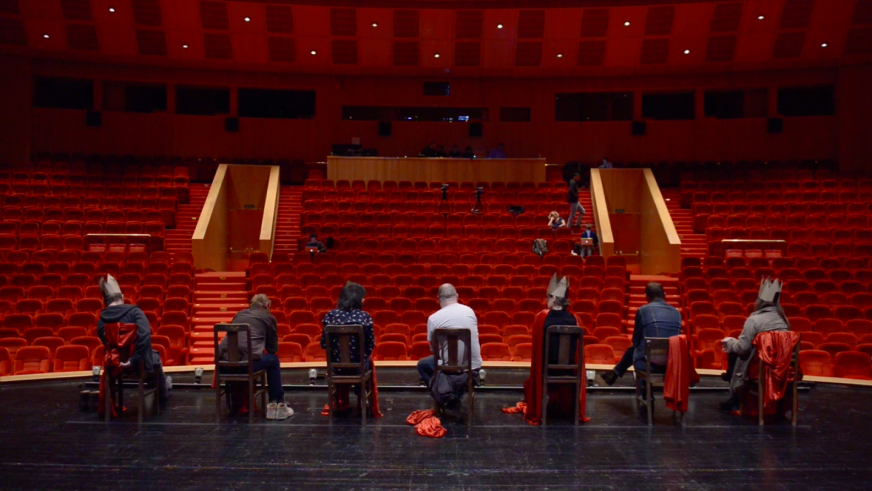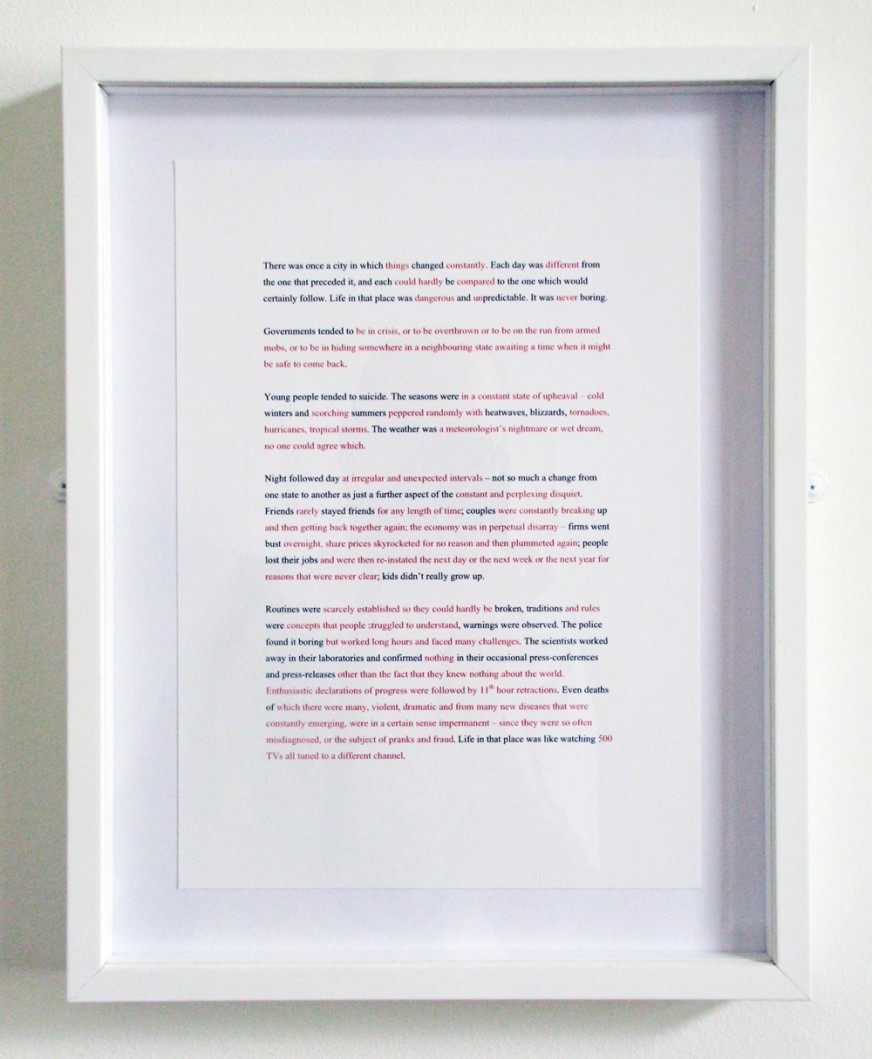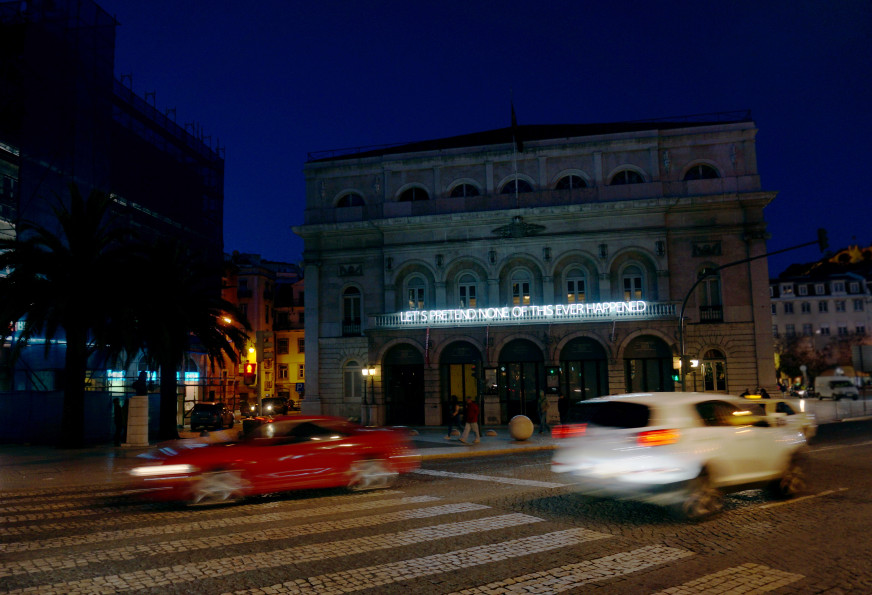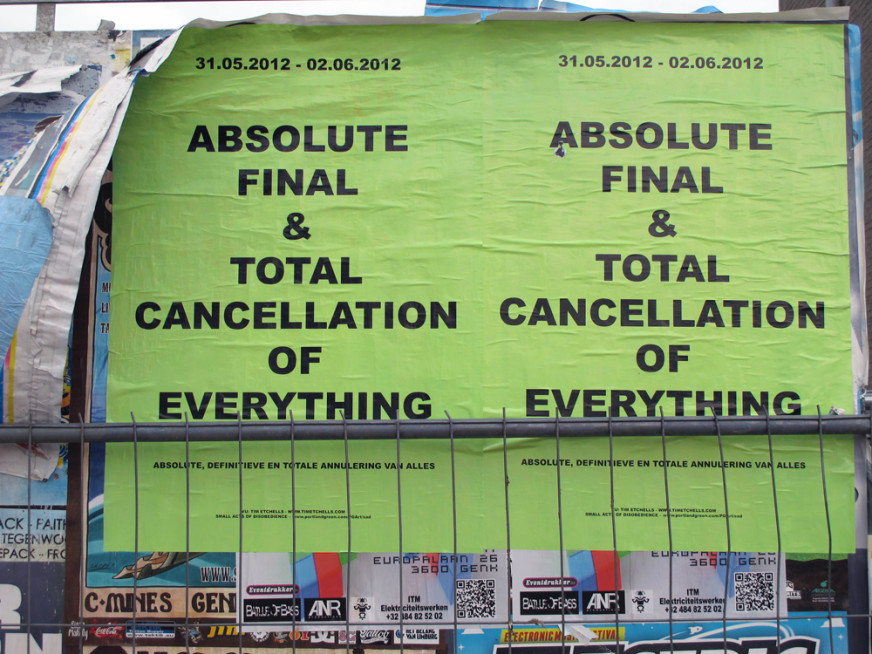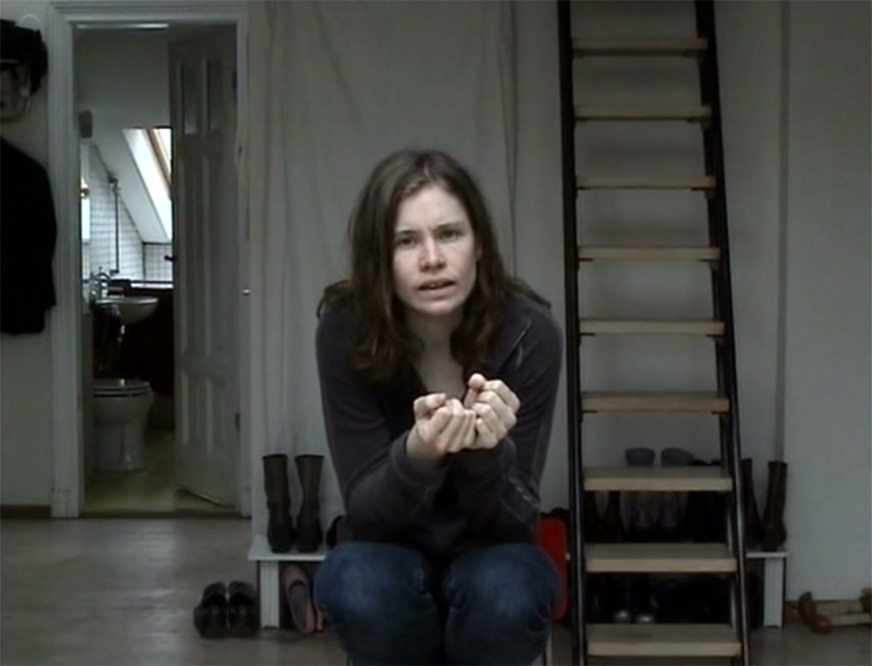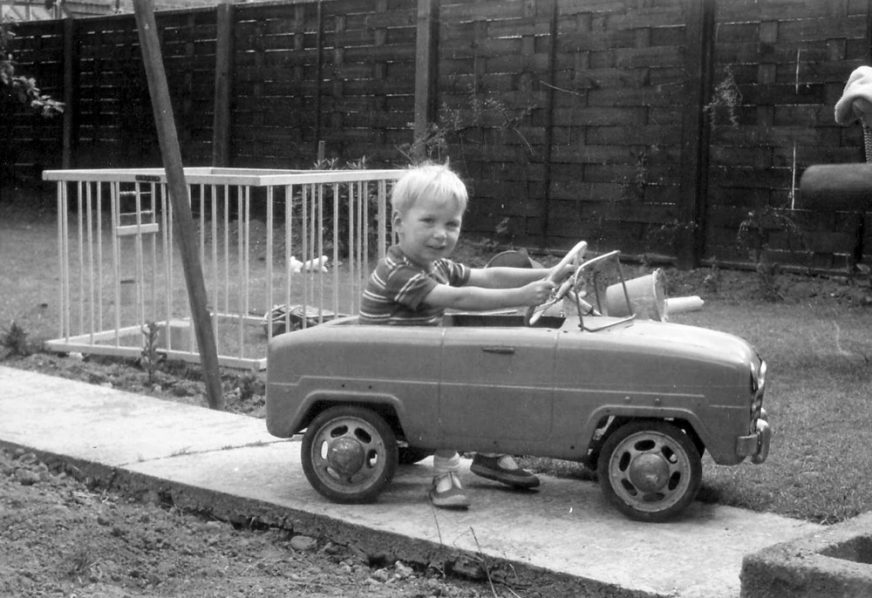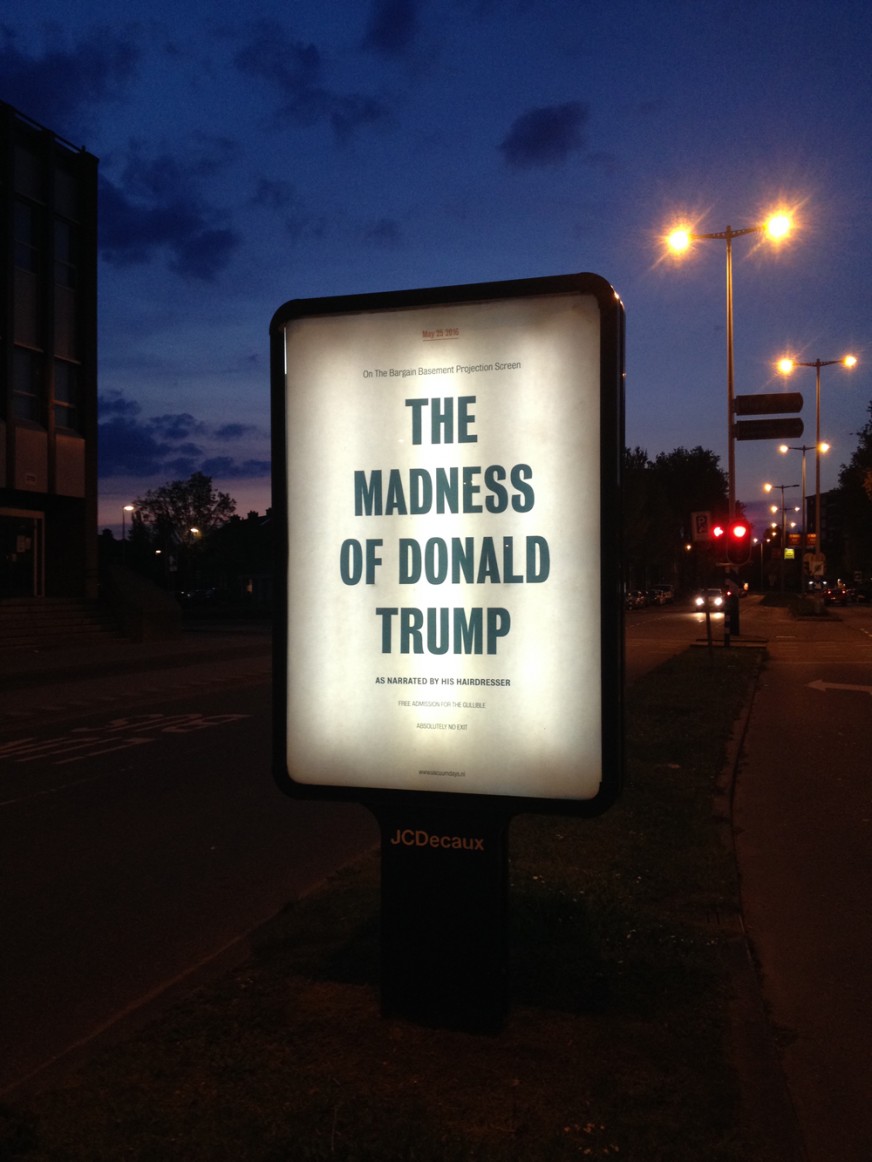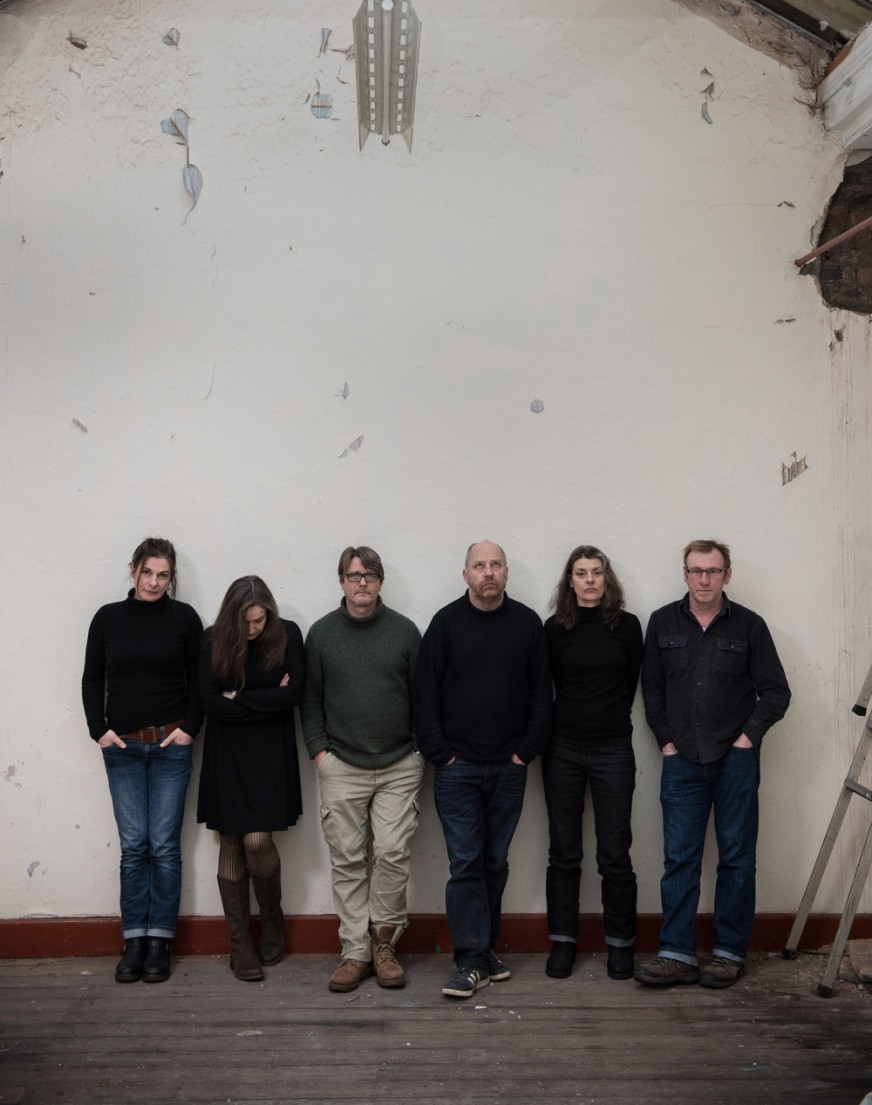There’s more information about Forced Entertainment receiving the 2016 Ibsen Award here.
Below is the text of my speech at the Ibsen Awards Press Conference, 18 March, at the National Theatre in Oslo.
*
First of all I would like to say – on behalf of all my colleagues at Forced Entertainment – Richard Lowdon, Robin Arthur, Cathy Naden, Terry O Connor and Claire Marshall in the creative team, Eileen Evans (Executive Director), Natalie Simpson (Office Manager) and Jim Harrison (Production Manager) as well as our Board of Directors – Deborah Chadbourn, Annie Lloyd, Simon Shibli, Frances Babbage, Martin Harvey and Adrian Friedli – thank you for this amazing International Ibsen Award.
We are really thrilled and touched that our work is being celebrated in this way.
The core group of the company began its work together in Sheffield 32 years ago and in the time since then we have made more projects than I can remember, collaborating to investigate what theatre can be, how it can open up a space of encounter and dialogue with audiences and how it can speak dynamically into the society and the times in which we are living.
Of course our collaboration has only been possible and meaningful in the context of the other extraordinary partnerships that we have built up over the years; with audiences that have come along with us on this long journey, with our funders, and with so many brilliant organisations, festivals, venues and individuals, nationally and internationally. We would like to thank them all. We’d also like to thank the extended group of collaborators that we have been lucky enough to work with through the years, a group that has helped to develop, extend and reinvent the work in so many ways. The range and depth of the company’s work has only been possible thanks to them.
We’re honoured that this award comes to us and that it marks the influence and contribution of our work together in changing the landscape of contemporary theatre practice. It’s great to be recognized and celebrated in this way.
But of course we also see this award as being about more than the company.
Giving an award of this kind to a collective, to a group is perhaps not easy or obvious – the way the culture generally places a premium on the idea of the individual, especially in the arts – the writer, the director, the auteur – is very clear. A group, by comparison, can seem rather nebulous, hard to define.
I was speaking last week at a conference in Antwerp about creative processes in theatre. In a room full of academics thinking about scripts, notebooks and other tangible materials of the creative process that they might study, I was trying to impress on them the importance of the intangible, particularly the social negotiated process of interaction between members of a group who work as we do, through a combination of improvisation, discussion, writing, and rehearsal.
I said:
I want to write about making performance as a process in which no single object or material, no single impulse, no single human intention (writerly or directorial), no single frame of understanding, no single thematic, no single conceptual frame, no single inspiration, no single vision, no single factor of any kind, either rules, determines, holds sway or serves as primary guidance. I want to write about the creation and rehearsal process, as one in which – for a good while at least – many diverse elements and impulses circulate all the time, in a constant push and pull with each other; a group process of dialogue, contradiction, displacement, contraction and expansion. I want to write about the rehearsal process, the creation process, as one in which the event or object of the performance itself will appear only through this dynamic interaction of materials, frames, desires, intentions, accidents and without recourse or reference to a singular (single) guiding object, conception or vision. A space in which (at least, from the outset) there is no fixed line, no fixed center.
It’s this space which the award to us celebrates – the space of many rehearsal rooms in which performance and theatre makers away from the literary mainstream in different parts of the world, have been working for decades, playing a huge role in reinventing and remaking theatre, stretching it in new directions. For us it’s the space which includes theatre but which also touches contemporary dance, performance art, multi-media experiment and installation performance, a space where artists have been working over and across the borders of art forms to challenge and reinvent what is possible on the stage, making a new language.
It’s the conversations at the unruly edges of the disciplines that this award to us marks, a zone of experiment that we have long seen as a home and which we are delighted to see celebrated here.
This award, we like to think, also marks and celebrates another zone, another periphery. Years ago we moved from Exeter in the South West of England, where we had studied, eschewing the shelter that the academic institution and the drama department might have afforded us, and at the same time avoiding the move to the capitol, to London, which so many of our friends were undertaking having completed their courses. We did not go to London, where the power and money in the UK were, and are, still focused. Instead we moved North, to Sheffield, to a former industrial city, at that point in decline, in the grip of Margaret Thatcher’s grotesque politics. It was an extraordinary move, hard to understand in retrospect perhaps, but it came from an understanding that innovation and change do not need to come from any idea of a centre, that the periphery has its strength, and that there might be a freedom, there, in that neglected space in which experiment could thrive. We were right about that. And so we like to think that this award, as well as celebrating the work the company has done and will do, also celebrates the creative strengths of the margins – places, approaches, voices and persons at the edge of the mainstream, at the periphery of official culture. We were a theatre company drawing on influence from cinema and performance art. Our first performance was in an art gallery, a collaboration with musician John Avery, who was part of Sheffield’s industrial music scene. We were looking for a new theatrical language with which to unpick the contemporary reality we inhabited – something that could make vivid and challenging experiences for audiences. The space we lived and worked in was in some ways a periphery, and in some ways a self-made centre all of its own.
Finally we would like to see this award as something that marks and celebrates the possibility theatre has to challenge audiences. In these times of ideologically directed austerity, in these times where in the UK at least, the value of the arts in the frame of education are openly attacked and questioned by government, in these times of increased division between rich and poor (inside nations, and between nations), in these times of rising nationalism, xenophobia and racism, in these times of a political shift to the right in Europe and elsewhere, there is a pressure on the arts to prove their worth economically, and as an instrument with which to bring people together, to heal rifts that the free market and politics have caused but will not stoop to address – celebration, participation and creativity are the buzzwords we are encouraged to have on our lips. But whilst we love to celebrate and to make the work we make, and whilst we love the idea and practice of participation we know that for us the value of art, and of theatre, lies as much in its ability to challenge, provoke and question as it does in any palliative fantasy. Our work – with its comedy, its human scale intimacy and its lo-fi DIY seductiveness – has also always pursued all kinds of unease, all kinds of disquiet, all kinds of questioning, serving what we understand as a hunger from audiences for experiences that are rich but not easy. It’s this understanding – of theatre as a space of challenge – that we are happy to underline on receiving this award.
And we want to say thank you again, for your recognition of what we have been doing and for the chance this award opens for us to do more and more ambitiously in the future. We’re looking forward to many more years of creative disquiet and we hope that the Ibsen Award championing our work in the way that it has will inspire others, in Europe and elsewhere to follow their own noses, their own intuitions and their own passions, to reinvent theatre in new ways that we can’t even begin to imagine.
Tim Etchells, for Forced Entertainment, Oslo. 18 March 2016.
